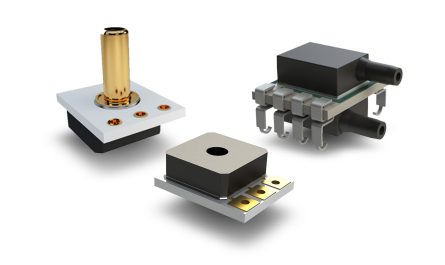MES helps manage shop floor activities in a manufacturing plant by collecting real-time production data from equipment and machines. This data is then analyzed to help optimize production processes, quality control, maintenance schedules and inventory management.
Overview of Key Features of MES
MES software combines technologies like manufacturing operations management, production data collection, warehouse management systems, labor management systems and others to provide real-time visibility into production activities. Some of the key features that MES systems provide include:
Data Collection and Historians
MES software collects real-time production data from machines and equipment using sensors, RFID tags and manual inputs. This data is stored in manufacturing historians for reporting and analysis. The data includes production volumes, quality parameters, downtimes, material consumption and more.
Shop Floor Control
MES manages the production schedule and workflow on the shop floor in real-time. It tracks the status of jobs, issues work instructions to machines and operators, and optimizes the production plan as needed based on current conditions.
Quality Management
MES helps implement statistical process control by tracking quality metrics like scrap rates, reworks and defects. Quality inspections can be automated through data collection. Non-conforming products can be traced back to their source.
Performance Analysis
MES provides Key Performance Indicators (KPIs) and production reports based on collected data. This helps identify bottlenecks, waste and areas for improvement. Performance of individual machines, lines, products and shifts can be analyzed.
Maintenance Management
Equipment performance data helps predict breakdowns and schedule preventive maintenance. Repairs and downtimes are tracked for reliability analysis. Spare parts inventory is optimized.
MES caters to specific industries
While the overarching functions of MES are similar, systems are tailored to the unique needs of different manufacturing industries. Some ways MES is applied:
Food and Beverage MES
It manages production in food processing plants. Regulatory compliance, traceability of ingredients and finished goods are key. Hygiene is monitored through sensors.
Pharma MES
It controls stringent quality processes in pharmaceutical manufacturing. Environ-mental conditions, material traceability are closely tracked for compliance.
Discrete Manufacturing MES
It coordinates complex discrete production lines with multiple machines. Interactive workflows accommodate frequent design changes efficiently.
Process Manufacturing MES
It manages continuous production processes like in chemical, oil & gas plants. It optimizes material and energy usage on dynamic production schedules.
Benefits of Implementing MES
MES generates significant benefits when successfully implemented in manufacturing operations:
Improved Productivity
Real-time visibility optimizes the use of equipment, labor and materials leading to higher output and less waste.
Higher Quality
MES ensures consistent quality by monitoring processes, detecting defects early and reducing reworks.
Reduced Costs
It cuts operational expenses through optimized maintenance, less downtime and waste elimination. Inventory is kept lean.
Enhanced Compliance
MES facilitates compliance to stringent industry and safety standards through automated documentation and traceability.
Better Decision Making
Actionable insights from production data analysis help strategic and tactical decision making.
Future Scope of MES Technologies
MES continues to evolve with Industry 4.0 technologies like IIoT, analytics, artificial intelligence, augmented reality and cloud computing. Some future applications include:
Predictive Maintenance
Using machine learning on equipment data, MES will predict failures before they happen and schedule maintenance accordingly to maximize uptime.
Digital Twin Factories
A digital replica of the physical plant will help simulate and test various “what-if” production scenarios virtually before implementation.
Autonomous Production
Augmented reality, robotics and AI will make shop floors more automated with less human intervention required. Unmanned operations can be remotely monitored through MES.
Cloud-based MES
The edge computing capabilities of IoT combined with cloud platforms will make MES more flexible, scalable and accessible anytime, anywhere on any device.
MES bridges the gap between the digitized factory floor and the strategic decision makers. As a core component of Industry 4.0, MES will help manufacturers transition towards smart factories for optimizing operations end-to-end through real-time visibility, control and analytics of production processes.
Note:
1. Source: Coherent Market Insights, Public sources, Desk research
2. We have leveraged AI tools to mine information and compile it




